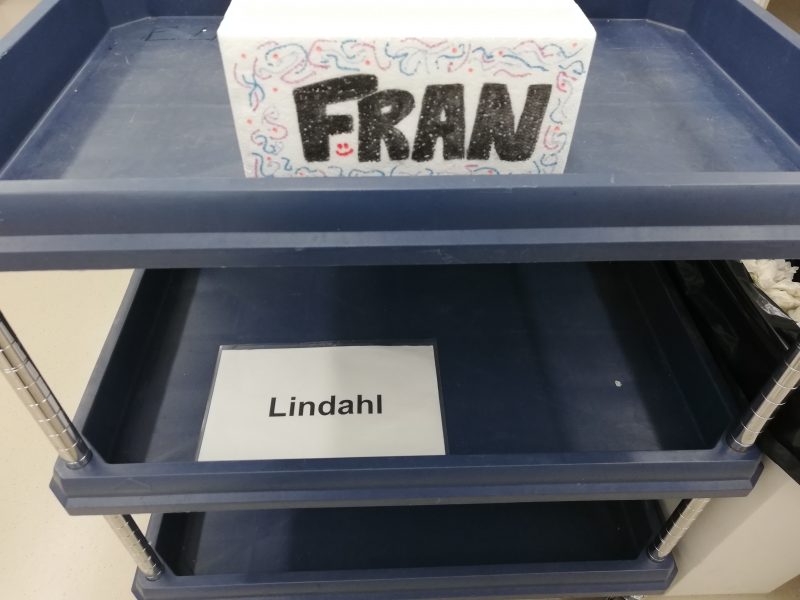
My experience as a SciLifeLab summer intern
This summer, I had the opportunity to intern in Dr. Erik Lindahl’s lab at SciLifeLab. This internship came about thanks to the SciLifeLab scholarship that I mention before is awarded to 6 students in the Molecular Techniques in Life Science programme every year. Luckily, I was one of this year’s 6 awardees.
My classmates and I had applied back in February. As a refresher, the criteria for selection for this scholarship is that one must have the highest grades possible in our courses at Karolinska Institutet and we must also submit a letter of motivation for what we hope to get out of the project(s) of our choice. The rest is up to the faculty in the steering committee to decide on the six best-suited applicants.
I thought it would be good to reflect on my time as a SciLifeLab summer intern to give future students of the programme an idea of what they can expect if they get a similar opportunity. The truth is I learned a lot during this summer and I want to share those lessons with you.
I would like to start by giving you a brief description of my project so you know the kind of research I’m interested in and involved with. When reading through the list of projects available at SciLifeLab during the application process, the one that caught my eye the most was the one offered by Dr. Erik Lindahl and Dr. Reba Howard. They proposed a summer project that involved screening several drugs to target ligand-gated ion channels. During my undergraduate studies, I had done research in the ion channels field and since I have my mind set on going into the pharmaceutical industry post-graduation, I thought that this project sounded very interesting and relevant to me. Hence, I applied. The rest is history. My internship officially started in June and lasted 8 weeks in total. However, I had joined some of my lab group meetings and journal club back in mid-April to get familiar with the research being done in the wider molecular biophysics group.
Now I will describe in more detail all of the lessons I took away from this experience.
In terms of technical skills, I became quite well-acquainted with needle pulling, oocyte injection, and oocyte electrophysiology (TEVC) during my summer project. I also was responsible for analyzing the entirety of my data and present it at the end of my internship. Unfortunately, I can’t share any of my findings with you because they may end up in a publication later on 😉
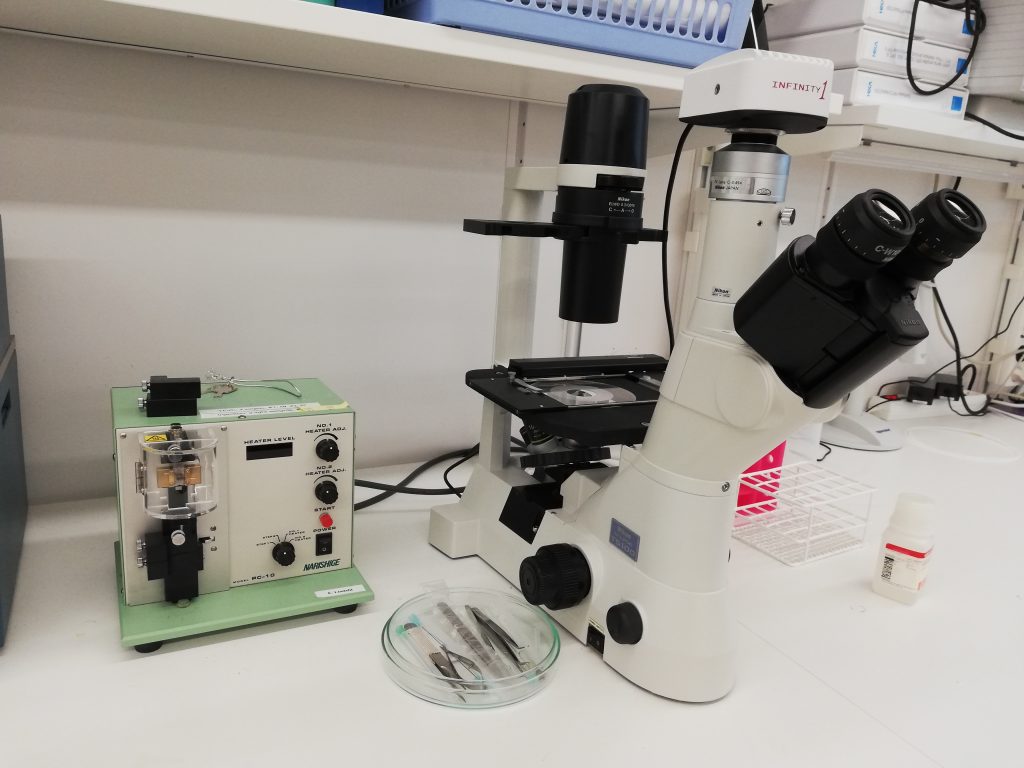
What I used to pull needles for injections and recordings 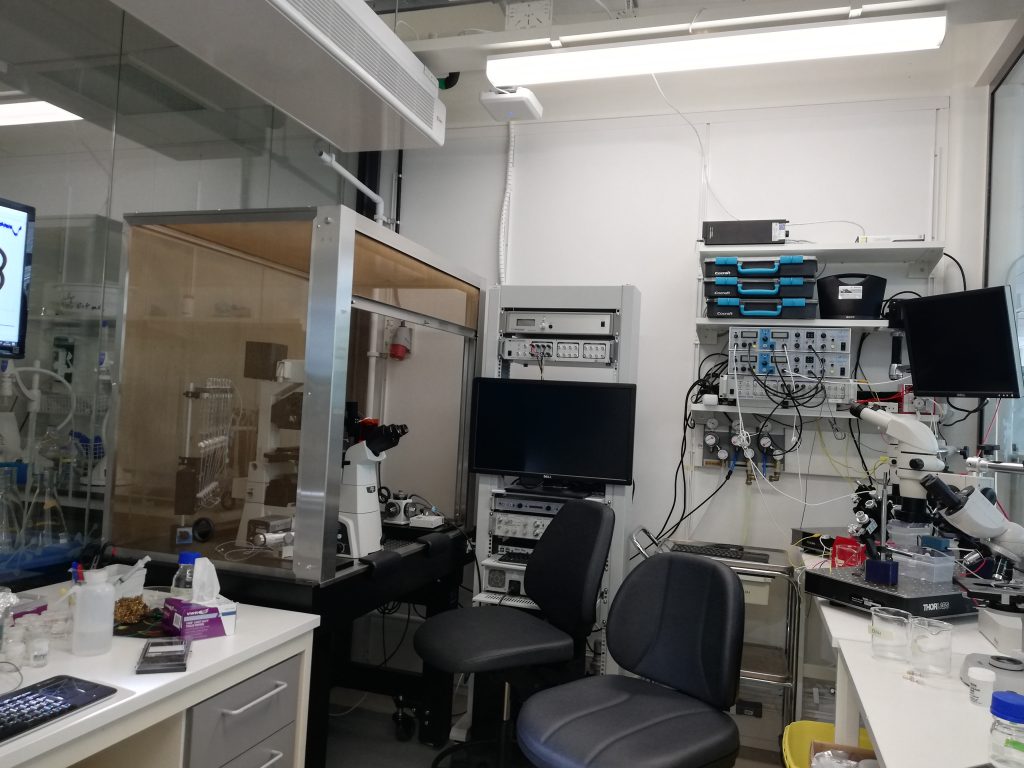
The electrophysiology room – my home for the summer
Now, beyond how comfortable I got with these technical wet lab skills, the most important part was the soft skills and other perks that came with this job. The truth is that I became increasingly more independent and able to troubleshoot as the weeks went on, something that seemed impossible at first when the project and research context was first given to me. Not only did I become more autonomous but I also was given the liberty to experiment and try my own hypotheses with different drugs. Every week, I met with my direct supervisors, Reba and Urska, and they were able to guide me in optimizing the protocol I was using for my experiments. I really felt supported by them and the rest of the team whilst also empowered to figure things out on my own.
Then, once I had collected a (un)reasonable amount of data, I learned how to analyze it using Excel and GraphPad Prism. This process was laborious but also interesting to me since I’m one of the few people I know that actually likes to do data analysis. Once all the data was analyzed, I was very impressed and a bit shocked by how much I had accomplished over only the course of a few weeks. I was able to tell the story of my learning curve and thinking process as the data analysis unraveled some relevant findings.
Meanwhile, I did two presentations in front of my colleagues and peers from our collective research group. One was a journal club presentation and the other was my final presentation about my summer project. Through listening to my colleagues’ previous presentations and also through rehearsing with my supervisor, I became more confident and self-assured at communicating science to an audience. Giving scientific presentations to an expert audience is something that has always stressed me out but I actually learned how to cope better with doing such throughout this internship.
Finally, the best part of this internship was by far the PEOPLE I got to work with. Not just my direct supervisors but also my peers and colleagues from the groups we collaborate with (i.e. Lucie Delemotte’s and David Drew’s) were incredibly helpful and supportive and nice! I learned so MUCH from everybody I got to interact with and I am so grateful for all of the conversations and advice we shared. I look forward to collaborating with any of these folks in the future on another research project (hint: maybe my thesis??).
If you are interested in research and want to have the opportunity to be paid to learn in an awesome collaborative environment like SciLifeLab, I highly recommend you apply to the scholarship next February. I have had the best lab experience and mentorship one could hope for this past summer, and that’s something I will always appreciate.
Francisca Leonardo - Molecular Techniques and Life Sciences
Hej! My name is Francisca. I come from the faraway land of the supreme maple syrup, aka Canada. I’m the blogger for the Master’s Programme in Molecular Techniques in Life Science at Karolinska Institutet. I love to write about my experience as a student in my programme, a newcomer to Stockholm, and a rookie at life in general. In my free time, I enjoy playing tennis, making music, sketching the city’s landscapes, and reading about anything and everything that interests me.

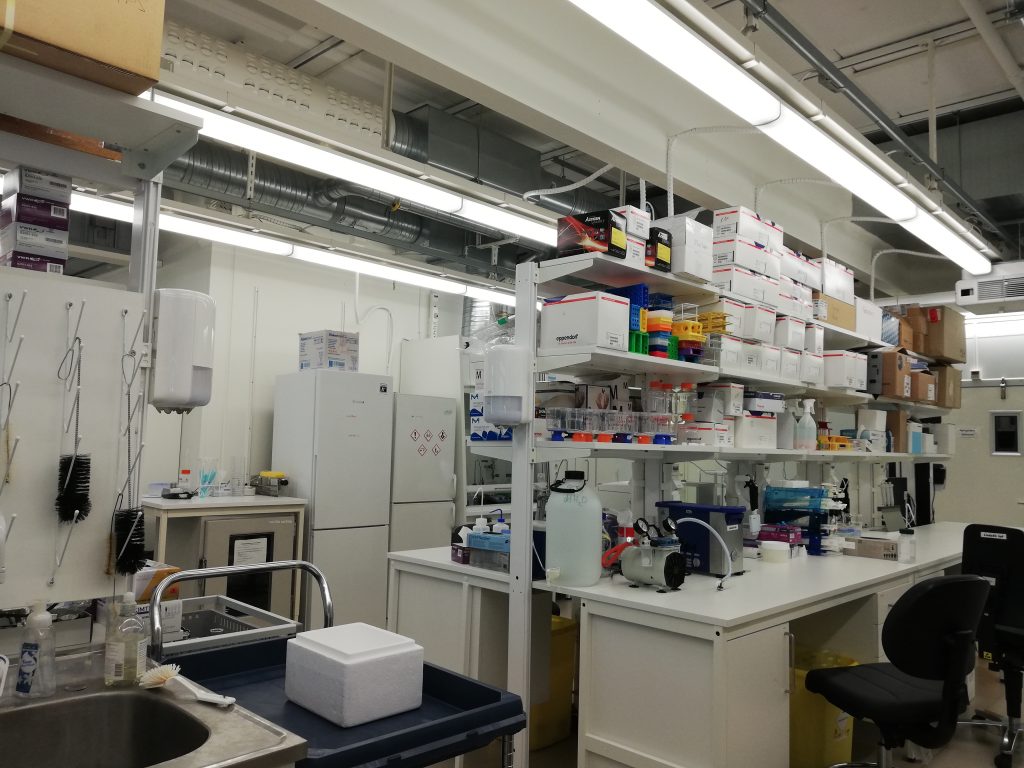
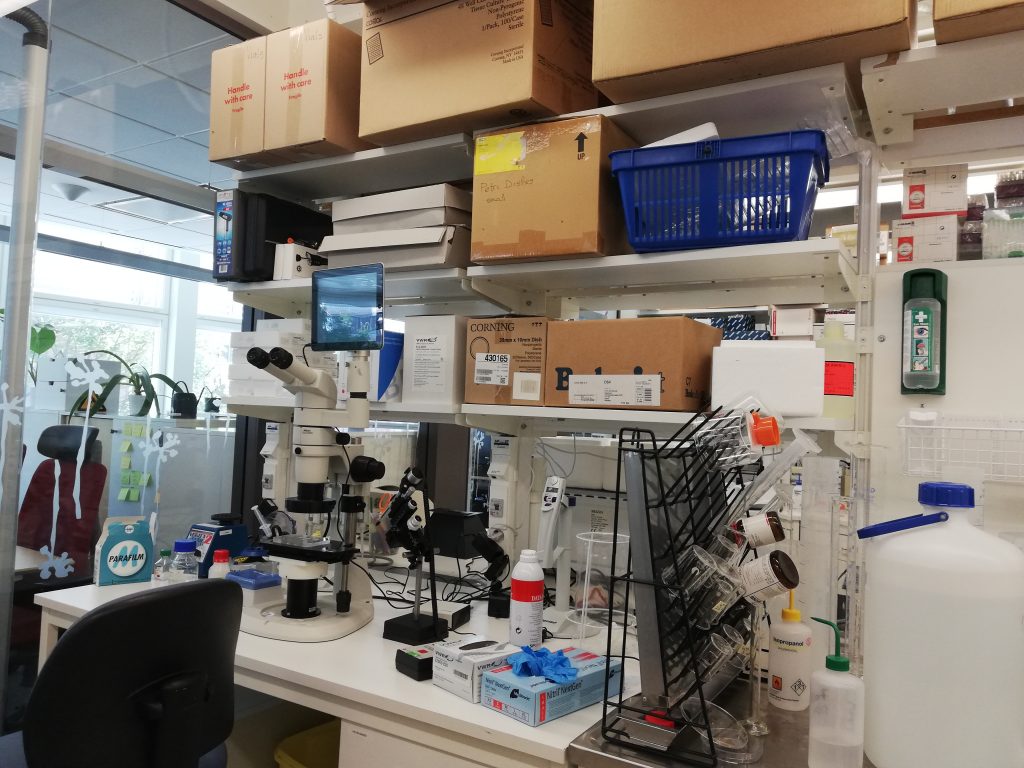
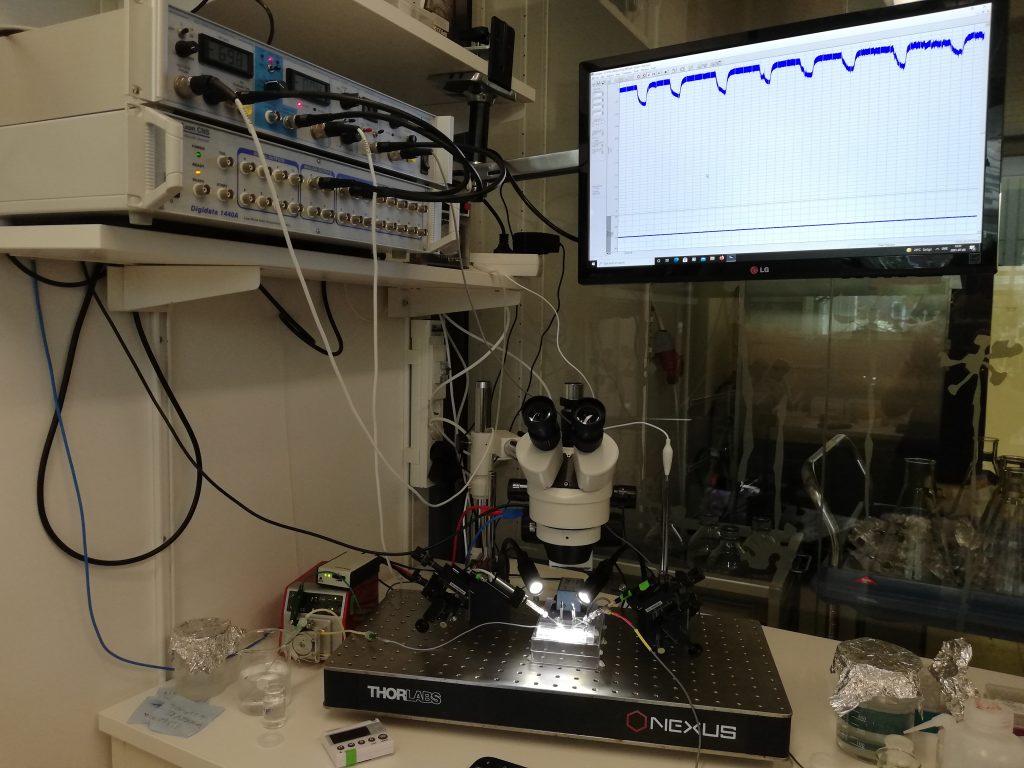
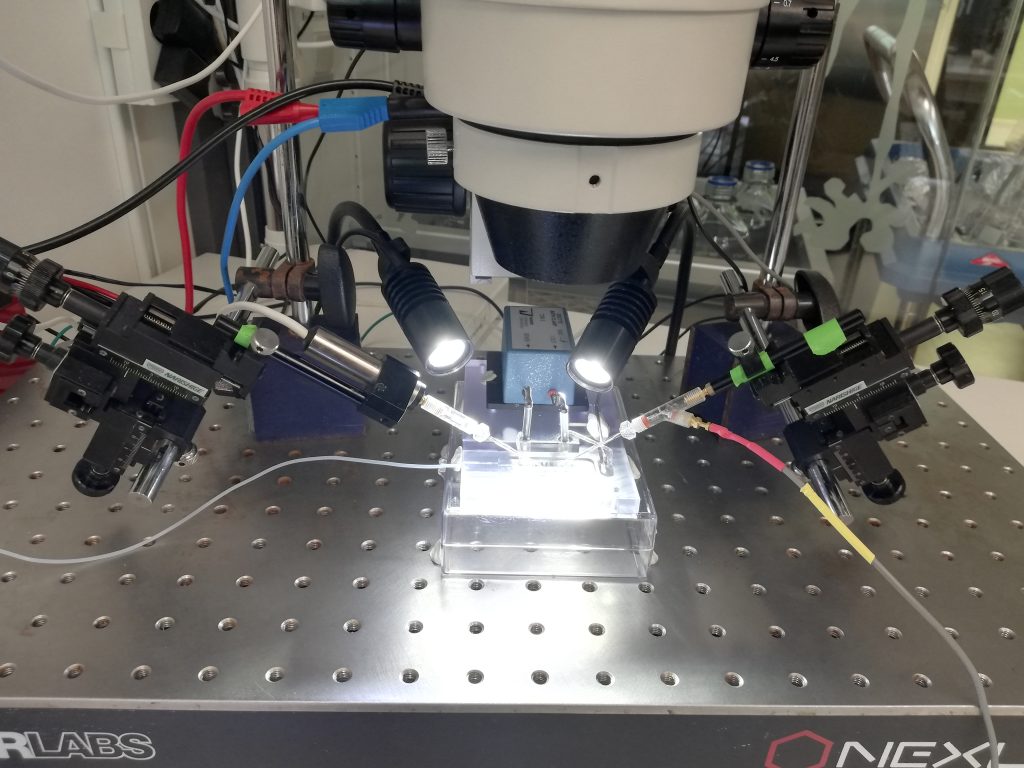
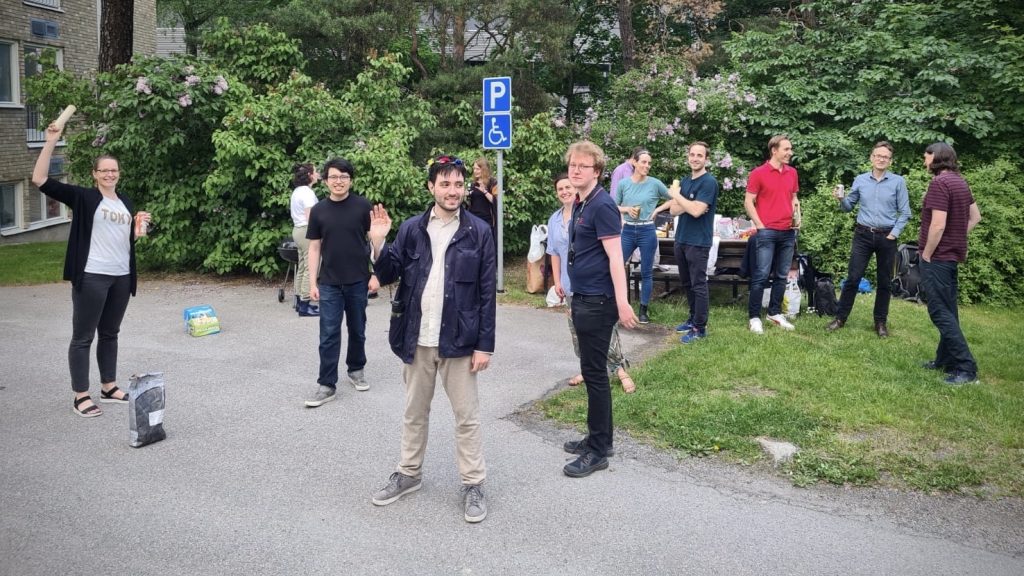
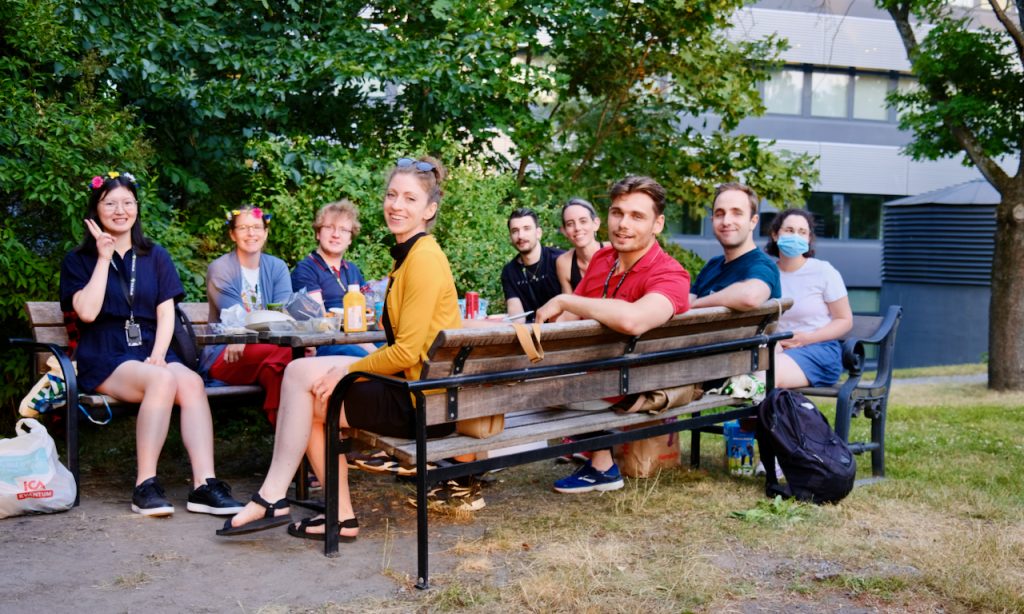
0 comments